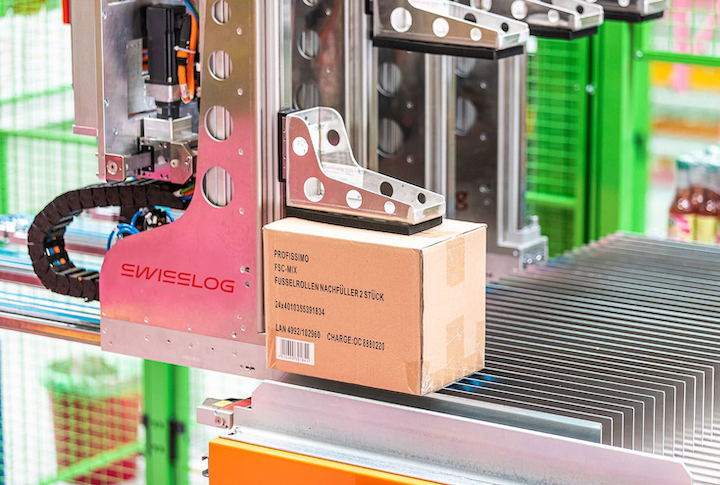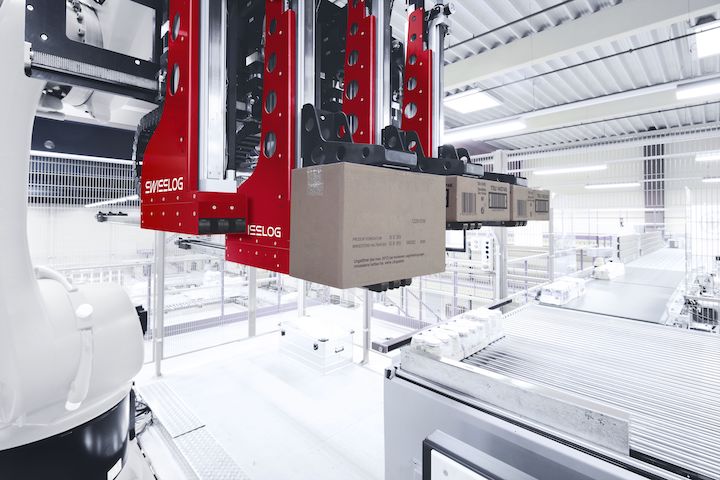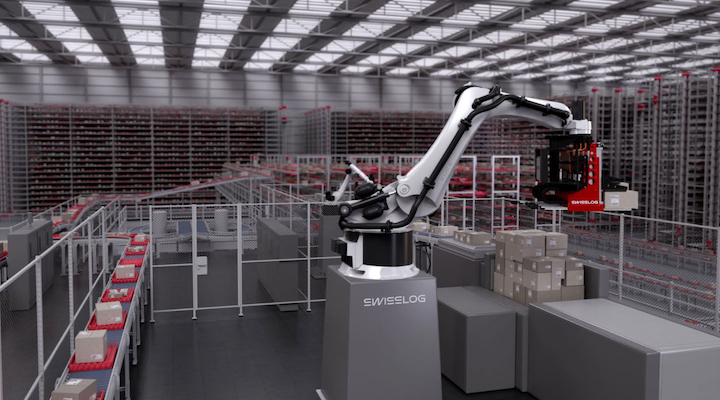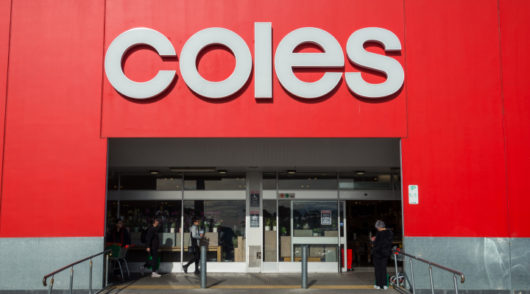Retail warehousing automation and intralogistics leader, Swisslog, has released a new white paper on how case picking and palletising is changing, and what it means for retail distribution.
The white paper, Making the Case for Store- and Aisle-friendly Fulfilment, talks about the challenges retailers face – including labour shortages, rising business costs, and the need for scale – and how retailers are turning to technology, automation, and robotic solutions that help them improve throughput, increase efficiency, and do more with less.
“Along with other retail trends, e-commerce has changed the amount of inventory retailers are keeping on store shelves, and the frequency with which those shelves are restocked,” says Steve Dimitrovski, senior sales consultant, retail and e-commerce, for Swisslog Australia and New Zealand.
“Swisslog is already leading the market in Australia with solutions like our micro-fulfilment centre (MFC) for e-commerce fulfilment specialists, Skutopia, which is the first of its kind in Australia to include an automated 24/7 e-commerce solution with click-and-collect availability,” he said.
“Solutions like the MFC for Skutopia are also highly energy-efficient, with each robot using just 0.1 kW of energy per hour – six robots use the same as a toaster. This low-energy consumption combined with low maintenance costs makes for a very favourable total cost of ownership (TCO),” he adds.

Mixed-case palletising
Most grocers and retailers receive full pallets of goods from manufacturers. Those items are then picked at a case level in the warehouse and sent to individual stores, where the goods are put on a shelf and sold.
Rather than having to replenish the store in full case quantities, for example, it may be more efficient to replenish the shelves in lower quantities for some products. Using automation and robotics, grocers can build a ‘delivery pallet’ with merchandise that is sequenced for a specific store aisle.
“Workers don’t have to break down and sort pallets – they can go straight to the aisle where everything is in the right sequence. This vastly improves in-store operational efficiency,” says Dimitrovski.
“And because many fulfilment tasks are repetitive, automation can boost worker morale and motivation while freeing up team members to work on more important projects,” he adds.

Company-wide efficiencies and benefits
The benefits of utilising store- and aisle-friendly automation extend beyond workers responsible for picking and packing. Other benefits include:
- For the logistics manager, mixed-case palletising solutions improve overall logistics management within the warehouse’s four walls, and those benefits also extend right out to the individual store level. Automated palletiser solutions also remove the burden from time-consuming, labour-intensive tasks like picking, packing, and shipping.
- For the supply chain manager, it is all about best managing inventory levels to meet customer demand, and they are increasingly turning to automation, robotics, and software for help. With versatile automated palletisers in place, these professionals can expect to see higher labour retention rates, improved throughput levels, and better overall efficiency from their operations.
- For the CFO, automation and robotics require an upfront investment, but the reduced reliance on costly labour can quickly offset those expenditures. When current labour resources are reserved for more important projects – and, not having to do the same number of repetitive, strenuous tasks daily – the company’s bottom line improves.
The power of integration
Retailers often know they need to automate some or all of their warehouse picking, packing and palletising operations, but don’t understand how the various pieces of equipment, software, and control systems ‘fit’ together to create a single, streamlined, efficient system.
“Companies may be able to purchase large systems on their own, but they need an integrator like Swisslog to bring it all together into a single, cohesive solution,” says Dimitrovski. “The magic that we bring is the power of integration.”
The full white paper dives deeper into the topics mentioned above, and talks about Swisslog’s ACPaQ mixed-case palletising solution, including a case study of its use for German retailer, DM-Drogerie Markt.
To download the full white paper, please click here.






